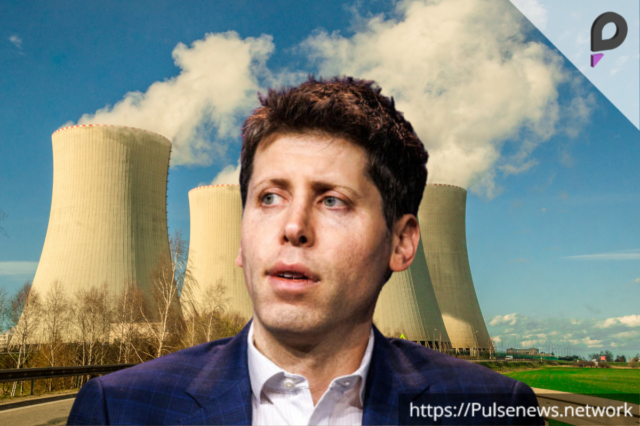NEW York: Sam Altman, known for his role as the CEO of OpenAI, is also the chairman of a promising nuclear energy company called Oklo. While OpenAI is focused on advancing artificial intelligence, Oklo is dedicated to developing nuclear power technology that could play a vital role in supporting the energy needs of the future, particularly as AI technology continues to evolve.
The Growing Demand for Energy
As our digital lives become increasingly reliant on electricity, the demand for energy is skyrocketing. Data centers, which power everything from cloud computing to artificial intelligence, have seen their electricity consumption grow by 50% since 2020. Currently, these facilities account for about 4% of the total energy consumption in the United States, a number that is projected to rise to 9% by 2030, according to analysts at UBS. With overall power demand in the U.S. expected to grow by 13% to 15% annually until 2030, ensuring a stable and sufficient energy supply is becoming critical.
Tech giants are recognizing that nuclear energy may be essential for a sustainable future. Microsoft, for instance, has plans to revive a reactor on Three Mile Island to power its AI initiatives, while Amazon and Meta are securing nuclear power deals for their data centers. As Anna Erickson, a nuclear engineering professor at Georgia Tech, explains, “Data centers operate 24/7 and need a stable supply of electricity.”
Altman’s Vision with Oklo
Oklo, founded in 2013 by two MIT graduates, aims to produce clean and affordable energy on a global scale. The company’s advanced nuclear reactors, known as “fast reactors,” promise to generate more power with less fuel, which means they are both smaller and cheaper to build. Additionally, Oklo plans to recycle used nuclear fuel from other plants, further contributing to sustainability.
Oklo is currently in the process of obtaining approvals to begin site investigations for its reactors, and it has already signed agreements to supply future power to data center operators. The company’s stock has doubled since it began trading in May, following a merger with Altman’s special purpose acquisition company, AltC Acquisition Corp.
The Broader Push for Nuclear Energy
The interest in nuclear energy is not limited to Altman. Other tech leaders, such as Bill Gates with TerraPower and Google’s investments in TAE Technologies, are also pushing for nuclear power solutions. In July, President Joe Biden signed the Advance Act, which streamlines the process for permitting and building new nuclear reactors, indicating bipartisan support for expanding nuclear energy.
While the tech industry’s investments in nuclear energy could help advance this clean energy source, some experts express caution. They question whether the focus is solely on benefiting the broader public or if it primarily serves the interests of tech companies looking to secure their energy supplies. Sharon Squassoni, a research professor at George Washington University, warns that the motivations of tech giants may not align with public interest.
The Challenges Ahead
Despite the potential benefits of nuclear energy, there are significant hurdles to overcome. Recent efforts to build new nuclear reactors in the U.S. have faced delays and cost overruns, and the industry is still grappling with the fallout from past nuclear accidents that have left lingering concerns about safety. Experts like Edwin Lyman from the Union of Concerned Scientists express concern that pressure from powerful tech companies could lead to regulatory rollbacks that compromise public safety.
Conclusion
Sam Altman’s involvement with Oklo highlights a growing trend among tech leaders to explore nuclear energy as a solution to the looming energy crisis driven by increasing digital demands. As the world looks toward a future where clean and reliable energy is essential, the role of nuclear power will undoubtedly come into sharper focus. While the promise of advanced nuclear technology presents exciting possibilities, it is crucial to navigate the associated challenges carefully, ensuring that the focus remains on safety and public interest. The future of energy, as envisioned by Altman and his peers, holds the potential to illuminate a brighter path for humanity.











